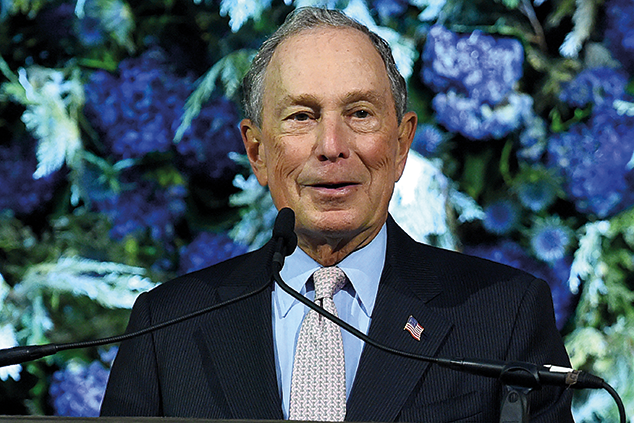
“No-one is more closely associated with New York City’s 21st century renaissance than Michael Bloomberg,” says The New York Times. Despite some personal flaws – “crankiness, a tin ear” – and a few “policy fiascoes”, the Boston-born technocrat and self-made multibillionaire (worth $54bn) was a transformative mayor between 2002 and 2014. “Crime plummeted, schools improved, racial tensions eased, the arts flourished, tourism boomed and city coffers swelled.”
New York to Washington?
Now Bloomberg, who is gunning to become the Democratic presidential candidate in 2020, hopes to repeat the trick on the national stage. Call it the latest reinvention of a master of different guises, says Forward.com. A Wall Street trader turned technology innovator and media magnate, Bloomberg’s most recent incarnation, prior to running for president, was as “a vocal environmentalist” and the country’s next most philanthropic billionaire, after Jeff and MacKenzie Bezos.
Yet for all his accomplishments, he remains an enigma. Small in stature, with “a leaden tongue for public speaking and a business background based in dull analytics”, he is “fascinating as a study of multi-sector success without star quality”. “I offer myself as a doer and a problem-solver – not a talker,” says Bloomberg, 77. That much is evident from his career path, says Joshua Chaffin in the Financial Times. Born into a working-class family, he showed no great early academic promise but nonetheless got into the prestigious John Hopkins University and then Harvard Business School.
On graduation in 1966, Bloomberg headed for Wall Street, joining Salomon Brothers where he “earned a reputation for smarts, sharp edges and occasional crassness”. That came back to bite him: “To his surprise – but not that of his colleagues – he was sacked after a 1981 merger.” Bloomberg, then 39, rebounded from this setback in style. The following year, he ploughed his $10m severance into a new company called Innovative Market Systems. The plan was to sell financial data using a dedicated hardware terminal, initially called Market Master, noted The Fast Company in 2015.
Making it big
Bloomberg’s first customer was Merrill Lynch, which took 20 units. Even though he started the company during “a raging recession”, the timing was “fortuitous”. Stock exchanges from New York to Tokyo were going electronic and there was a gap in the market for “a truly sophisticated online service”. Bloomberg provided it.
By the end of the decade, sales of the renamed Bloomberg Terminal were growing at some 30% a year. “By definition, any computing platform invented in the first half the 1980s” that has continued to survive “has accomplished something remarkable”.
Bloomberg seriously “upset” established incumbents Dow Jones and Reuters – a David-and-Goliath feat that impressed many of his fellow tycoons, says Chaffin. Rupert Murdoch once described him as “the most creative media entrepreneur of our time”. Now he is “wielding his $54bn fortune like a bludgeon”. Grabbing the White House might still seem “far-fetched” – but then so has most of his career so far.